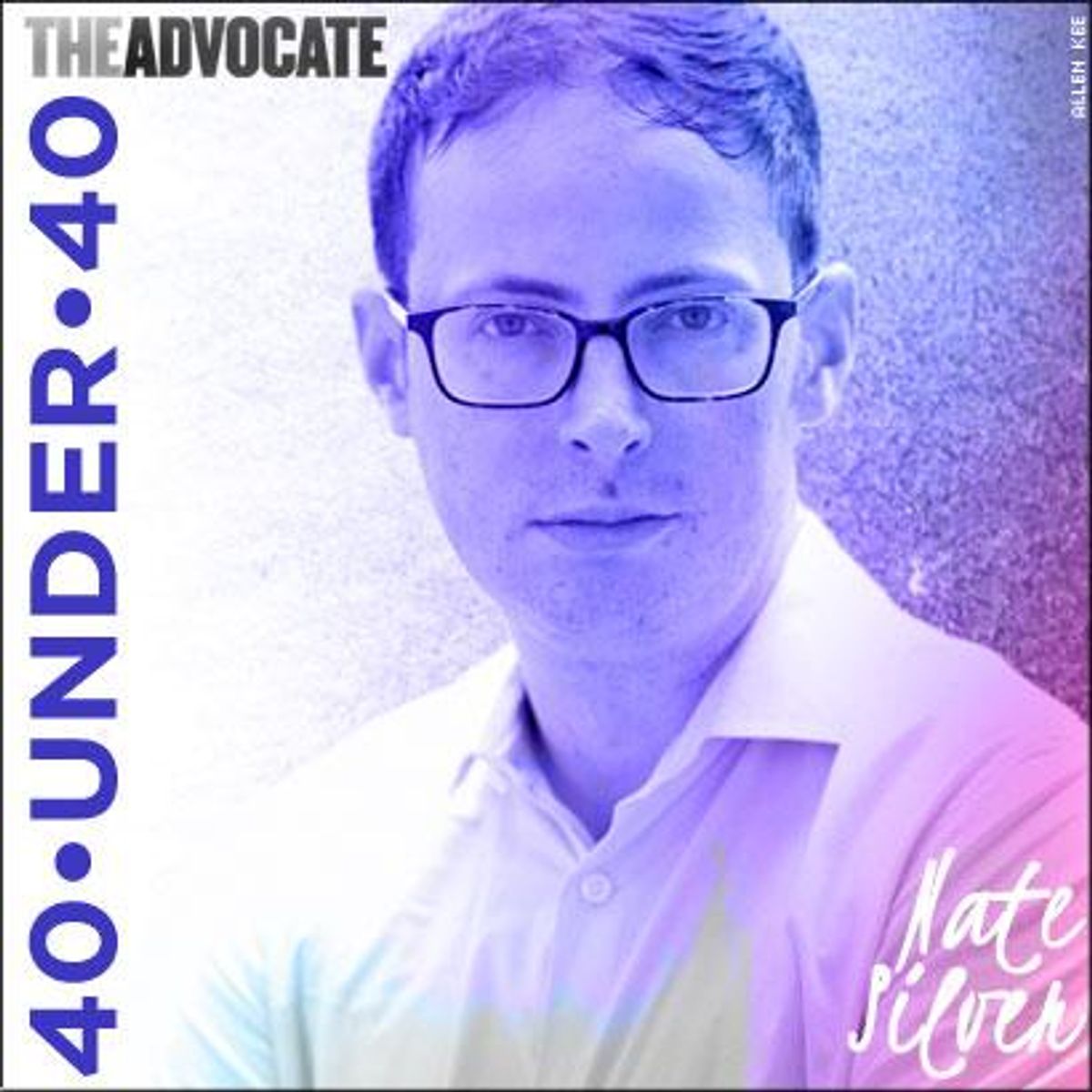While Nate Silver is among the best at predicting election outcomes -- if not the best -- that hasn't earned him unconditional love in Washington, where he still sometimes finds himself an outsider looking in.
"It's made it easier because we have a clearer sense of identity," Silver says of leaving The New York Times to relaunch FiveThirtyEight, all without becoming part of the usual inside-the-Beltway crowd. "We avoid the trap of writing journalism for other journalists."
Silver, 36, is the guy who rose to national prominence after predicting the results of the 2008 election in 49 out of 50 states, missing only Indiana, which Barack Obama won by just a single percentage point. The statistical expert also correctly predicted the results of all 35 U.S. Senate races held that year. Then he and his blog joined The New York Times in 2010, only to leave after the last presidential election.
The inside-the-Beltway crowd's love-hate relationship with Silver had been quite public for a while. Just before voters went to polls in the 2012 presidential election, Politico's media writer, Dylan Byers, questioned whether Silver really knows what he's talking about with a story headlined, "Nate Silver: One-term celebrity?"
"Prediction is the name of Silver's game, the basis for his celebrity," wrote Byers, outlining a what-if scenario that never materialized. "So should Mitt Romney win on Nov. 6, it's difficult to see how people can continue to put faith in the predictions of someone who has never given that candidate anything higher than a 41 percent chance of winning (way back on June 2) and -- one week from the election -- gives him a one-in-four chance, even as the polls have him almost neck-and-neck with the incumbent."
Silver turned out to be right -- again. He correctly predicted the outcome in every state. Then he unloaded on Byers and Politico.
"I think he's a terrible journalist," Silver told Out magazine upon being named its Man of the Year in 2012. During an interview with ESPN, Silver analyzed Politico this way: "They're trying to cover [politics] like sports, but not in an intelligent way at all. They want to create noise, basically. Their whole thing is you have to have a lead story about some gaffe that somebody made on the campaign trail. In politics, you can have a whole month where nothing of any import whatsoever happens. But you still have to have Politico produce a paper seven times a week."
Then in another media dust-up, Silver accused conservative Wall Street Journal columnist Peggy Noonan of "flawed statistical thinking." That's the actual phrase used in his New York Times headline. After Romney lost, Noonan had lamented the political world's sudden emphasis on data analysis. In this case, though, Silver was engaged in a wonky debate about the news of the day -- an IRS scandal -- but used it to make a much broader statement about pundits.
"The principle is important: a handful of anecdotal data points are not worth very much in a country of more than 300 million people," he wrote. "Ms. Noonan, and many other commentators, made a similar mistake last year in their analysis of the presidential election, when they cited evidence like the number of Mitt Romney yard signs in certain neighborhoods as an indication that he was likely to win, while dismissing polls that collectively surveyed hundreds of thousands of voters in swing states and largely showed Mr. Obama ahead."
No matter how often Silver is right, there will likely be some who insist his mathematical view of politics overlooks a mystical quality that defies it from prediction. Still, Silver is right an awful lot.
He first came to notoriety for creating PECOTA, a statistical analysis program for predicting performance of Major League Baseball players. In 2006, Silver's first book was published, Baseball Between the Numbers: Why Everything You Know About the Game Is Wrong -- to critical acclaim, of course. Silver started blogging at Daily Kos and then launched his own website, FivetThirtyEight.com, beginning his expansion from sports to politics. Silver's second book, The Signal and the Noise: Why Most Predictions Fail But Some Don't, was released in 2012 and quickly made the New York Times best seller list for nonfiction. In it, Silver made his statistics come alive by explaining how the rest of us can better identify answers to real-world, everyday questions about politics, sports, and more.
In mid-2013, ESPN made a deal for FiveThirtyEight. It relaunched as part of ESPN in March 2014 with a focus on a broad range of subjects under the general description of "data journalism."
That Silver is gay (telling Out that friends would describe him as "sexually gay but ethnically straight") was never much of a story during all of this. But it plays a part in why he's successful. "Don't be afraid to question authority," he advises up-and-comers. "That's a key skill for a journalist -- and it's something that LGBT people are usually pretty good at."
To those who follow him, Silver is an oracle with such a stunning track record that everyone wishes he'd weigh in on their hopes for the future. And Silver has a few predictions about what's to come for LGBT equality that opponents should probably heed.
"Politicians have been behind the curve on same-sex marriage for years," Silver says. "It was only when a majority of people began to support it nationwide that supposedly progressive Democrats like Barack Obama and Hillary Clinton announced their support for it. But they've come around -- I doubt we'll ever again see a Democratic nominee for president who fails to support it. In fact, we're getting to the point where the failure to support same-sex marriage will be a liability for a politician in most states."
This is one of eight profiles that The Advocate released this week for the annual "40 Under 40" list. From now through Friday, August 8, readers are asked to vote on who you think should be on The Advocate's digital edition cover. Then the remaining 32 honorees will be released in August along with the new cover. Go to Facebook to vote now!
DANIEL REYNOLDS contributed to this report.


















































































